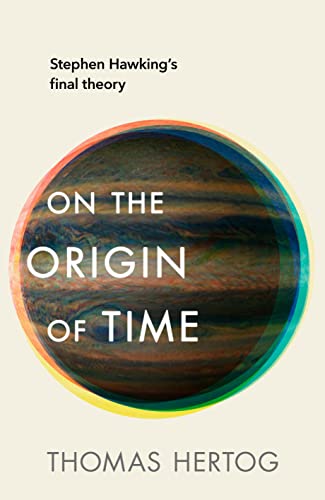

Full description not available
B**M
Clear and comprehensive
As the author says, this is in some ways the book that Stephen Hawkings did not live long enough to write, and "commissioning" it from his long-time colleague and friend was almost the last thing he did. Many of the concepts are difficult by any stretch of the imagination (and this is exactly what many of them do), but I found most of it remarkably easy to follow - the author has a knack (as inded did SH himself) for creating a logical flow to his explanations which really does help comprehension. Yes, there are bits that are still very obscure and I would have to revisit them, quite probably several times, before even beginning to get a hold on them - but compared with many books of this kind (most notably Brian Cox' latest offering on Black Holes) this is a model of clear explanation of the most challenging ideas ever thought up by the blue-sky cosmological thinkers.Whilst this book offers a refutation of the ideas underlying A Brief History of Time, which SH abandoned in the course of further consideration, it is probably still worth reading that one first, just to get the basics in the mind ready to be refuted in this one. In short, if you are interested in this level of cosmology then I don't think you are likely to find a better book than this to bring you bang up to date.
D**B
Interesting and readable.
It gives a glimpse into Hawking's life and thinking as well as an account of the development of theories regarding the origin of time and of the universe.
A**A
Lovely
Lovely
M**P
Not for all.
I’m not a scientist – more of an engineering background. This hasn’t stopped me from following the world scientific through keeping up with developments via the so-called ‘popular science’ publications. I’m please to say that (even if some need more than one reading!) I seem to have a pretty good grasp at a layman-plus level. Needless to say I have been eagerly anticipating this volume.But I’ve ended up rather disappointed. It’s down to the somewhat eccentric style of writing by Hertog. One minute he starts to go over pretty old ground (eg the two slit experiment) but then doesn’t exactly bother to explain it very much (reasonably assumes the reader already knows all this) then leaps into something that – for the layman – is far beyond every-day comprehension and proceeds to gloss over it as “surely you know all this”. I know in any such book as this there is going to be lots of arcane jargon, but the level of basic English used makes it a heavy read. Unbelievably, I found sections just plain boring.The ultimate concept of Stephen Hawking’s last great theory is all there, but I feel this particular book has made it so difficult to absorb that it will be for a very narrow audience.
D**D
A thought-provoking and well-written journey into mind-boggling concepts
One of the things which distinguishes this book from others which attempt to grapple with these abstruse subjects is that it frequently makes comparisons between the most fundamental concepts in physics, and similar concepts in other sciences, especially biology. In particular, Hertog draws analogies between the tree of life and the hierarchy of physical laws which emerged from their work. Even the title of the book harks back to Darwin’s On the Origin of Species.The book does not contain a great deal of mathematics (I counted 2 equations in the whole book). However, some of the concepts that it explores might be quite difficult for a non-physicist to grasp.There are a couple of quotes from Stephen Hawking himself which left quite a strong impression on me:Firstly, his observation about meeting alien intelligences: “We only have to look at ourselves to see how intelligent life might develop into something we wouldn’t want to meet.”Secondly, his final words, which were beamed into space during a memorial service on 15 June 2018: “When we see the earth from space we see ourselves as a whole; we see the unity and not the divisions. It is such a simple image, with a compelling message: one planet, one human race. Our only boundaries are the way we see ourselves. We must become global citizens. Let us work together to make that future a place we want to visit.”
J**T
A revelation.
Hertog brings together Stephen Hawking's findings, sourced from so many people,including Schrodinger, Schwarzschild, Heisenberg, Einstein, Wheeler, DiracEverett, and many more, but crucially he cites Darwins' "evolution and selection",the "sum over histories" of Richard Feynman fame, and the "delayed choice"version of the famous double slit wave function experiment, all of which helped crystalisehis "top down" explanation of the evolution of the Universe,along with much discussion of the multiverse ( Which he, along with Carlo Rovelli, discard. )and anthropic bias, ( Which is explored in another book, by Nick Bostrom. )This, along with inflation, string theory, Higgs, etc.The argument is turned upside down as Hawking realiseshis early assumptions were wrong, and the book expertly comes to a truly amazing conclusionabout time, the true nature of the so called laws of physics, the big bangand quantum cosmology as the evolution of the Universe.A final debate on holographic theories near the end of the book add to future discussions..
G**M
Clever stuff
Relatively easy to read for a scientific book and am still reading it.
F**
First rate book
The way Thomas worked with Stephen to produce such an excellent book is amazing, I could not put the book down
Trustpilot
1 day ago
1 month ago